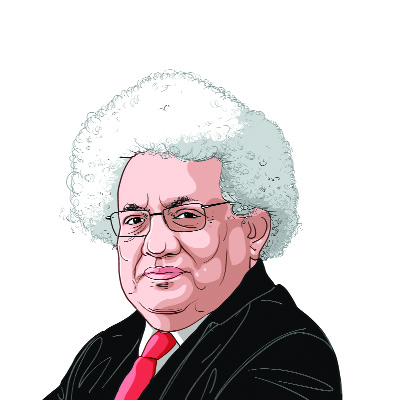Opinion Muslim renaissance
The rebellion persists in the Middle East.
The rebellion persists in the Middle East. Two dictatorsthe Presidents of Tunisia and Egypthave already gone. Turmoil continues in Yemen,Bahrain,Libya,Algeria and Iran. The stereotypes of Muslim society are being overturned. Women in hijab are out there on the streets of Bahrain and Libya and Iran,asserting their desire for freedom. The sectarian division between Shia and Sunni which the rulers of these countries have exploited for ages are being overcome by the people in the street. What is going on?
Muslims have had a bad deal ever since early 18th century. Of course the decline of Muslim hegemony of Europe began in the 15th century when they were thrown out of Spain. But at least the Ottoman Empire on the borders of Europe and Asia and the Mughal Empire in South and Central Asia gave Muslims something to be proud of between the 16th to late 18th centuries. The Mughals began their decline in the early 18th century and the Ottomans began to fall behind the European Renaissance by the same time. It is this decline of political fortunes which coloured Muslim consciousness. As M J Akbar has pointed out in his masterly book,Tinderbox,the Muslim resistance began in India soon after the death of Aurangzeb. At the start,it was a way of coping with the death of Muslim rule but later it became with Syed Ahmad Barelvi,a movement of anti-Western resistance. The way adopted was via a return to the fundamentals of the Koran and the ways of the Prophet. In India,it led to the founding of the Dar-ul-Uloom,the first nationalist seminary,not sectarian,but a liberal body from the very beginning.
In the Middle East,however the defeat of the Ottoman Empire first led to the secular anti-religious revolution of Ataturk. Turkey was modernised and the Caliphate was abolished. Britain and France invented some kings and put them in power in Syria,Iraq and Jordan. Soon secular socialist leaders of the Baath Party led many of the nations after the Second World War. It was the defeat of these Arab leaders,all by and large atheists in the mould of Ataturk in three wars with Israel which put paid to the modernist westernised path. What we have had since is the revival of the Wahhabi movement and its own strict version of Islam.
Arab dictators lived uneasily with Wahhabism while the Saudi kings encouraged it. This is what led to Osama Bin Laden and 9/11. Ever since then the image of Muslims in the western world has been coloured by the fundmentalist fanatical Wahhabist Al-Qaeda,a movement which resists modernity even while it uses modern technology. In each Muslim majority country,the Islamists have waged a war against modernity and for Sharia law. Pakistan,which owes its origins to Sir Syed Ahmad Khan and Mohammad Ali Jinnah,both modern Muslims,is currently going through the effects of this war waged by the Islamists against Muslim countries.
What is now happening in the streets of Arab countries is a real revolt against the dictators and the Fundamentalists. This is a belated demand by Muslims for the freedoms that many societies have enjoyed after they came to terms with western liberalism. The long overdue engagement with western modernity may yet happen in Arabia. After all women around the world have a lot of stake in the values of human rights,which are a part of the Western liberal tradition. In India,secularism has led to the government helping the forces which are resistant to modernity among the Muslims,leading to persistent deprivation among them. Even now when someone like Prof Vastanvi is trying to bring modern educational practices to Deoband,his appointment is being sabotaged by those who would rather keep Muslims captive of the mullahs than let them liberate themselves with modern education. In the streets of Arabia or the cloisters of Deoband,it is the same struggle.


